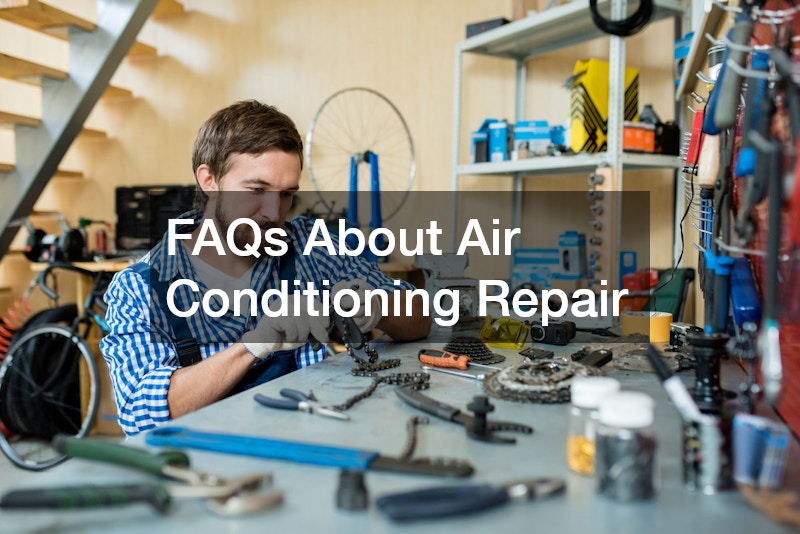
Air conditioning systems play a crucial role in maintaining comfort, especially during hot months. However, like any mechanical system, they can sometimes malfunction. Understanding the common questions surrounding air conditioning repair can help you navigate the situation more effectively. Here are some frequently asked questions (FAQs) about air conditioner repair in Santa Rosa, CA.
1. When Should I Call for Air Conditioning Repair?
Many homeowners are unsure when to seek professional help.
Here are some signs that indicate your air conditioning system may need repair:
Inadequate Cooling: If your AC is running but not cooling your home effectively, it could indicate a refrigerant leak, clogged filters, or issues with the compressor.
Strange Noises: Unusual sounds, such as grinding, squealing, or banging, can be a sign of mechanical problems. These noises often indicate that components are malfunctioning or that something is obstructing the system.
Foul Odors: Unpleasant smells can indicate electrical issues or mold growth within the unit. A burning smell should be addressed immediately, as it may pose a fire hazard.
Frequent Cycling: If your AC turns on and off frequently (short cycling), it may indicate a problem with the thermostat, dirty coils, or other internal issues.
If you notice any of these signs, it’s wise to contact a professional technician for an inspection.
2. What Causes Air Conditioning Problems?
Various factors can lead to air conditioning malfunctions. Some common causes include:
Dirty Filters: Clogged filters restrict airflow, making the system work harder and leading to reduced efficiency or failure.
Refrigerant Issues: Low refrigerant levels can prevent proper cooling and indicate a leak, which requires immediate attention.
Electrical Problems: Issues with wiring, capacitors, or relays can disrupt the power supply to your AC unit, causing it to malfunction.
Age of the System: Older air conditioning systems may require more frequent repairs and are less efficient, ultimately leading to higher energy bills.
3. How Often Should I Schedule Maintenance?
Regular maintenance is crucial for extending the life of your air conditioning system and improving its efficiency. Most experts recommend scheduling maintenance at least once a year, ideally before the cooling season begins. During maintenance visits, technicians can:
Clean and replace filters
Check refrigerant levels
Inspect and clean coils
Test electrical connections
Assess overall system performance
Regular maintenance can help identify potential issues before they escalate, saving you time and money on repairs.
4. Can I Fix My AC Myself?
While some minor issues can be addressed by homeowners, such as changing filters or cleaning vents, many air conditioning repairs require professional expertise. Attempting to fix complex problems without proper training can lead to further damage or safety hazards. It’s best to consult a qualified technician for repairs, especially for:
Refrigerant leaks
Electrical issues
Compressor problems
By allowing professionals to handle repairs, you ensure that the work is done safely and correctly.
5. How Much Will Air Conditioning Repair Cost?
The cost of air conditioning repair can vary widely depending on several factors:
Type of Repair: Minor repairs, such as replacing a capacitor, may cost less than $100, while more extensive repairs, such as replacing a compressor, can range from $1,000 to $2,500 or more.
Location: Repair costs can vary based on your geographical area and the local cost of living.
Age of the Unit: Older systems may incur higher repair costs due to outdated parts and technology.
To get an accurate estimate, it’s best to contact multiple HVAC companies for quotes after they assess your system.
6. What Should I Look for in a Repair Technician?
Choosing the right technician is essential for ensuring quality repair work. Consider the following when selecting an HVAC professional:
Licensing and Certification: Ensure the technician is licensed and certified to perform HVAC repairs in your area. This demonstrates their expertise and adherence to industry standards.
Experience: Look for technicians with extensive experience in repairing your specific brand and model of air conditioning system.
Customer Reviews: Reading customer reviews and testimonials can provide insight into the technician’s reliability, professionalism, and quality of work.
Warranty and Guarantees: A reputable technician will offer warranties on both labor and parts, giving you peace of mind regarding the quality of the repair.
7. What Can I Do to Prevent Air Conditioning Problems?
Preventive measures can help reduce the likelihood of air conditioning failures. Here are some tips:
Regular Maintenance: Schedule annual maintenance to keep your system in good condition.
Replace Filters: Change or clean your air filters every one to three months, depending on usage.
Clear Debris: Keep the outdoor unit clear of leaves, dirt, and debris to ensure proper airflow.
Monitor Thermostat Settings: Ensure your thermostat is functioning correctly and set to a comfortable temperature.
Seal Ducts: Check for leaks in your ductwork, as these can significantly affect your system’s efficiency.
8. Is it Time to Replace My AC Instead of Repairing?
If your air conditioning unit is older (typically over 10-15 years), requires frequent repairs, or has significantly decreased efficiency, it may be time to consider replacement. Signs that replacement might be necessary include:
High Energy Bills: A noticeable increase in your energy bills could indicate that your system is working harder than it should.
Inconsistent Temperatures: If certain areas of your home are not cooling effectively, it could point to system inefficiencies.
Frequent Repairs: If you’re spending more on repairs than you would on a new unit, replacement may be the more cost-effective option.
.
